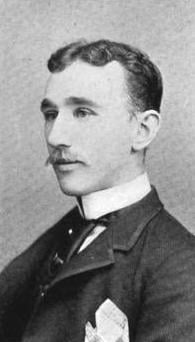Waste Land
Briar and fennel and chincapin,
And rue and ragweed everywhere;
The field seemed sick as a soul with sin,
Or dead of an old despair,
Born of an ancient care.
The cricket’s cry and the locust’s whirr,
And the note of a bird’s distress,
With the rasping sound of the grasshopper,
Clung to the loneliness
Like burrs to a trailing dress.
So sad the field, so waste the ground,
So curst with an old despair,
A woodchuck’s burrow, a blind mole’s mound
And a chipmunk’s stony lair,
Seemed more than it could bear.
So lonely, too, so more than sad,
So droning-lone with bees —
I wondered what more could Nature add
To the sum of its miseries . . .
And then—I saw the trees.
Skeletons gaunt that gnarled the place,
Twisted and torn they rose—
The tortured bones of a perished race
Of monsters no mortal knows,
They started the mind’s repose.
And a man stood there, as still as moss,
A lichen form that stared;
With an old blind hound that, at a loss,
Forever around him fared
With a snarling fang half bared.
I looked at the man; I saw him plain;
Like a dead weed, gray and wan
Or a breath of dust. I looked again—
And man and dog were gone,
Like wisps of the graying dawn. . . .
Were they a part of the grim death there—
Ragweed, fennel, and rue?
Or forms of the mind, an old despair,
That there into semblance grew
Out of the grief I knew?
From Poetry, Vol. 1, No. 4 (January 1913). This poem is in the public domain.

